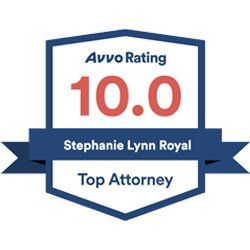Wills and Estates
While some people believe that estate planning is something that only retired people or wealthy people do, this is not the case. While it is true that people who have acquired a substantial amount of wealth often do think about preserving it, estate planning typically means more to families that have modest assets: Assets that they cannot afford to lose. Sometimes disputes arise concerning the interpretation of a Will or concerning the administration of an Estate. If you want to have some say during your life about how to your property will be distributed after your life, or if you have Probate or Estate matters, contact the Royal Law Office today to learn more about our services. We will be happy to create your estate plan or represent you in a probate proceeding. Our phone numbers are 301-275-9973 (in Maryland) or 202-255-6921 (in the District of Columbia). If you are interested in online legal services, please visit our “Contact Us” page and fill out the contact form. Someone from our office will respond via email, or you can chat with us online.
Estate Planning
There is much more to estate planning than just creating a Will and/or a Trust. While we are happy to assist you with drafting these documents, our knowledge and experience can provide you with invaluable advice to help you as you make decisions to protect your property, finances and your loved ones. At the Royal Law Office, we will discuss your options and then work with you to determine how you can achieve your estate-planning goals in a cost-effective, efficient manner.
The Estate Planning process begins with the creation of a Will or Trust.
The Will
A Will outlines what you would like to happen to your property following death.
Some of the important information in a Will includes:
`
- The names of your heirs
- A guardian for your minor children (if applicable)
- Identification of assets
- Nomination of an executor or personal representative – The person responsible for collecting and then distributing your assets as outlined in your Will
The Will provides instructions; however, assets titled in your name or directed by the Will itself must go through probate. If you own property in multiple states, each state may require that a probate process be conducted before releasing the property to your heirs.
Everything you own does not have to go through the probate process: For example, any assets on which you already have a beneficiary named will not need to go through probate. These assets typically include IRAs, life insurance, annuities and 401(k)s. These assets are not controlled by the Will and generally transfer to the beneficiary or new owner without going through probate.
The Benefits of a Revocable Living Trust
Some families prefer to have a revocable Living Trust with a pour-over Will. Choosing a revocable Living Trust eliminates the need for probate following death (including those for property owned in multiple states).
Other benefits of a revocable Living Trust include:
- Preventing the court from controlling your assets (should you become incapacitated).
- Bringing all assets together into a single plan, including those that already have beneficiary designations.
- Being valid in all 50 states.
- Allowing you to demonstrate your love and values to family, friends and future generations.
Whereas, a Will essentially dies with you, a Trust does not. The trustee you select to manage your assets can manage them until your beneficiaries are old enough to inherit them. The age of inheritance is selected by you and written in your Trust. Furthermore, if you have a loved one who has special needs, a Trust can continue providing care for him/her longer than a Will. Also, Trusts help protect assets from spouses, creditors, and beneficiaries as well as from irresponsible spending.
Probate
Probate refers to the process of completing all business affairs of an individual who has passed on and allows a forum for passing the deceased person’s property to those who are to inherit it. Using certain requirements, the Court decides if a testamentary document is a true last and valid Will of a Decedent. Then the probate administration begins.
Estate assets include those titled in the name of the decedent without a designated beneficiary. Successful completion of probate involves distributing the probate assets to the beneficiaries and paying creditors, etc. Typically, a Will needs to go through probate if property must be collected, creditors need to be paid or there needs to be a distribution to beneficiaries. If a person dies “intestate” i.e. without a Will, probate will be necessary to change the title of any property owed by the decedent into the name of those who are to inherit it.























